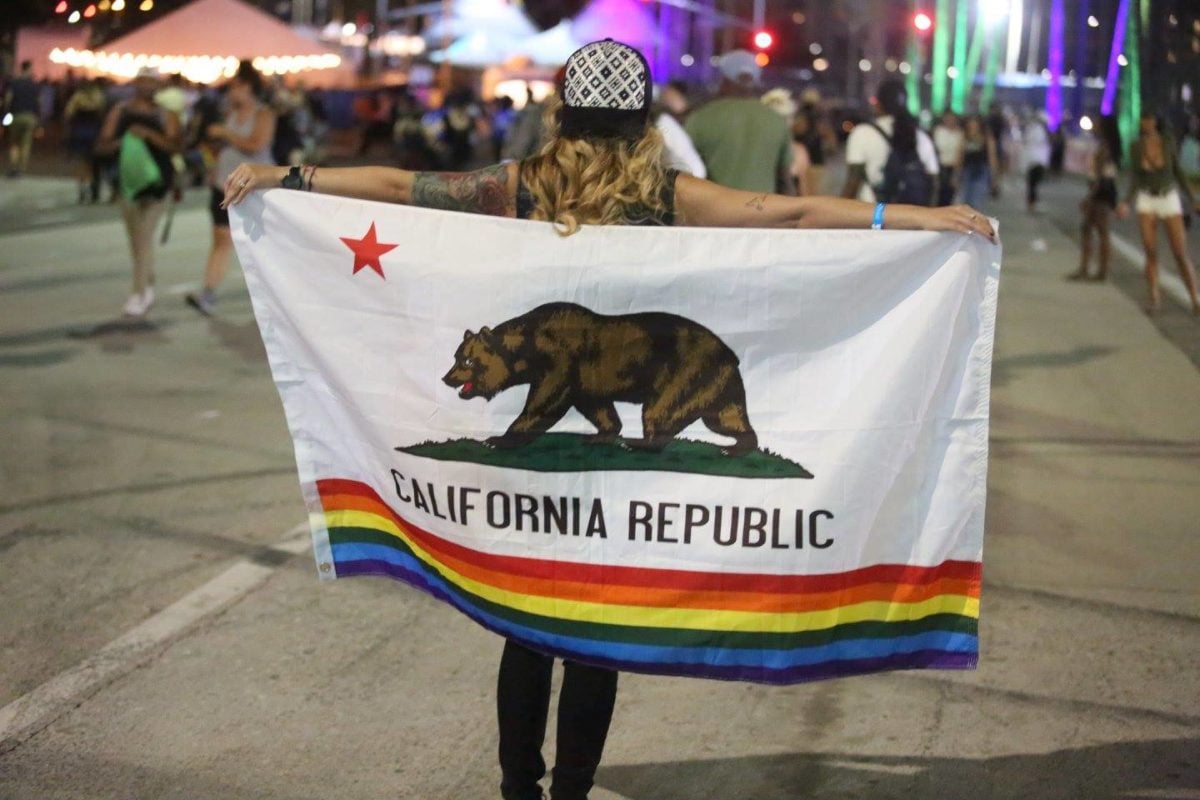
Visitors at Long Beach Pride in 2017 showed their pride in many ways. Photo: Q Voice News file.
It’s a new year and several California laws went into effect Jan. 1 that benefit the LGBTQ community.
Here’s a rundown on the legislation.
AB 245, Affirming Transgender & Nonbinary Students’ Names in College Act
This law will ensure that California’s public colleges and universities allow former students who identify as transgender and nonbinary to have their name and gender accurately reflected on their academic records, such as transcripts and diplomas. The bill also provides a standardized process for changing the name. AB 245, from former Assemblymember David Chiu, builds upon AB 711, also from Chiu that was signed in 2019, that covers school districts, charter schools, and county offices of education.
AB 439, Nonbinary Option for Death Certificates
The law adds “nonbinary” as an option for gender identity on death certificates. Codifying inclusive gender identity options on death certificates brings these documents in line with California’s existing nonbinary options on driver’s licenses and birth certificates. The bill was authored by Assemblymember Rebecca Bauer-Kahan, D-San Ramon.
California already allows nonbinary identification on birth certificates, court documents, and driver’s licenses.
AB 1084, Gender Neutral Retail Departments
California is the first state in the nation to require that large department stores display gender neutral toy sections, among other products. AB 1084 is a win for gender identity advocates who say the blue and pink colors of traditional marketing campaigns pressure kids to conform to gender stereotypes.
SB 258, the HIV and Aging Act
Seniors living with HIV in California will have access to programs and services administered through the Department of Aging.
SB 258 updates the state’s Welfare and Institutions Code to include seniors living with HIV because they are more likely to have multiple comorbidities, behavioral and mental health issues, and limited social support.
That also means local aging agencies will be required to outreach to seniors living with HIV about programs and services available to them.
AB 1094
California is the first state in the country to track violent deaths, including suicides and homicides, in the LGBTQ community.
The law establishes a three-year pilot program in six counties (Fresno, Los Angeles, Santa Clara, Stanislaus, and two others selected at the discretion of the Department of Public Health, with one of the counties a rural county in Northern California). In these locations, coroners and medical examiners will receive cultural competency training on how to collect data on sexual orientation and gender identity in all cases of violent deaths.
The goal is to understand disparities in the LGBTQ community’s mortality rate. Then, policies will be developed and resources focused, at the county level, to address the disparities and help reduce preventable deaths.
Coroners and medical examiners already collect data on gender, age, ethnicity, and race in violent deaths.
In Los Angeles County, LGBTQ suicide rates, violent deaths, and hate crimes and data on sexual orientation and gender identity are being tracked.
